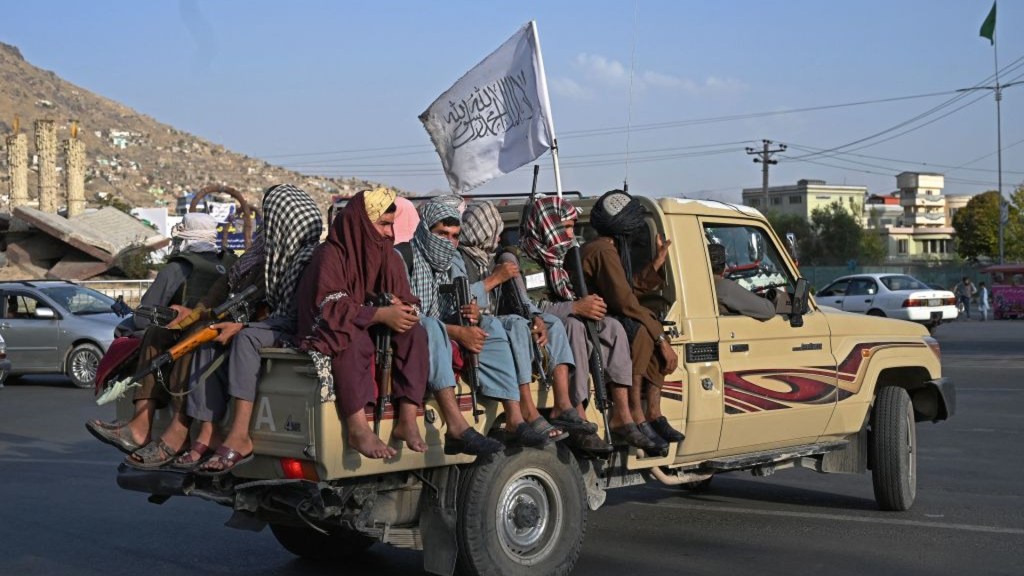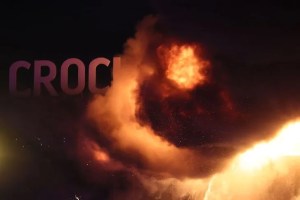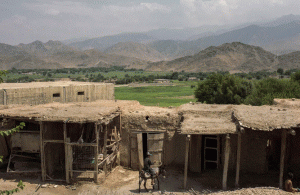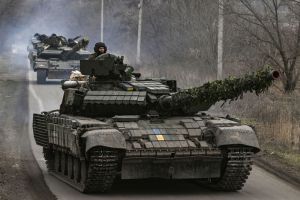Some western governments and media have been involved in a collective act of wishful thinking in recent months over the Taliban — believing them somehow to be ‘moderate’ and on the way to forming an inclusive government. The idea began with their elevation of status as a partner in negotiations with the US in Doha. They were legitimized, so some believed they had changed.
The last remnants of that belief must have been burnt out by the appointment of the Taliban cabinet this week, which was not inclusive in any sense, but was the result of three weeks of bartering between different Taliban factions, only resolved by the intervention of the head of Pakistani intelligence, the ISI, General Faiz Hameed.
More than half of the members of the new government face international sanctions as terrorists. The list includes four of the five men released from Guantanamo in a prisoner swap in 2014 and four members of the Haqqani family, whose terrorist network was responsible for the largest attacks in Kabul in recent years, and who have US bounties on their heads.
In announcing this line-up the Taliban proved once again how out of touch they are with the outside world and any sense that Afghanistan is a different country from the one they governed until 2001. Some of those appointed are even filling the same role they played in the first Taliban government. The only real change from 2001 is the entrenchment of the Haqqani network at the heart of the Taliban, with Sirajuddin Haqqani as interior minister now responsible for the security of people he once terrorized. The son of the founder of the movement, Jalaluddin Haqqani, who fought against the Soviet occupation of Afghanistan, Sirajuddin has a fearsome personal reputation. He held a meeting of tribal elders this week incongruously in what was until three weeks ago the State Ministry for Peace, equipped this year with American funding. Dressed all in white, draped in a webbing harness of ammunition pouches, and bearing an American-supplied M-16 rifle, Haqqani praised the work of suicide bombers, who had made this victory possible. Meanwhile the new minister for higher education, Abdul Baqi Haqqani, questioned the value of getting a degree. If the Taliban have changed at all it is only to have become more intractable and hard line.
As the full consequences of the defeat of the American-led coalition sinks in, the prominence of this terror network at the heart of the Afghan government is one of the most visible signs of failure. International jihadi violence emanating from Afghanistan is far more likely with the Haqqani network in the ascendance, given their closeness with groups such as Jaish-e-Muhammad and Lashkar-e-Tayeba developed by Pakistan to carry out attacks in India. It was this nexus that carried out the most ghastly act even by Afghan standards, the attack on a maternity ward in May 2020. The Haqqani network is implicated in illicit trade, not just in opium, but other Afghan resources, including timber, coal, gems and talc. It is hard to imagine that opium will be suppressed and other trade taxed and brought under state regulation now they are in government.
As the history of the Afghan war begins to be written, America’s failure to counter Pakistan’s support for Haqqani is emerging as one of the biggest strategic errors. America has known for years of the international aspirations of the Haqqani group, and how close they were to the ISI. Karzai would often tell visiting Americans that they were fighting the war in the wrong place. ‘You’re fighting the war in the homes of the Afghans, you ought to be fighting the war in Pakistan.’ Some in the four US administrations that dealt with the Afghan conflict shared this analysis. In 2011, the Chairman of the Joint Chiefs of Staff, Adm. Mike Mullen, called them a ‘veritable arm’ of the ISI. President Obama’s envoy for Afghanistan and Pakistan Richard Holbrooke used the formulation that they were fighting ‘the wrong enemy in the wrong country.’ But America never grappled with this threat, unwilling to destabilize a nuclear-armed state.
Pakistan’s influence in the formation of the Taliban government can be seen in a number of appointments, in particular the demotion of Mullah Baradar to a deputy prime minister role.
But the compromises made in putting the government together makes the Taliban administration inherently unstable. They have less than 100,000 fighters, not enough to provide effective security across the country as the police have gone.
There was only the token presence of two Tajiks and one Uzbek among the 33 cabinet posts, with all other jobs going to Pashtuns, Afghanistan’s largest tribe. The absence of Hazaras, who have been growing in influence and wealth in recent years, was a particular aberration. They profess the Shia faith and have faced persecution by the Taliban in the past. Only eight of the cabinet appointees are from the north, with the remaining 25 from the two largest Pashtun tribal areas, 15 from the east and 10 from the south. But each appointment leaves someone with a grievance who was not appointed. The prominence of the Haqqanis has limited the influence of other more traditionally powerful eastern tribal groups. And those from the south, in particular Kandahar and Helmand, are from minority tribes. Most of those who actually fought the war, including the Mansur network, named for the leader killed in a US drone strike in 2016, have been excluded.
And while even in its own terms the formation of the Taliban government is inherently unstable, it also showed a lack of imagination and knowledge of the society that Afghanistan has become. There was never any intention in the minds of the Taliban that this would be ‘inclusive.’ There was no role for senior figures from previous administrations, including the former president Hamid Karzai and Abdullah Abdullah, who have both remained in Kabul and have been promoting a more broadly-based government.
The most glaring absence of course was of any women. Women in leadership roles across Afghan society, and qualified for many different jobs, has been a significant social change of the last 20 years, but Taliban spokesmen have shown no recognition of this, instead restricting women to the home and some roles in health and education.
The failure to form an inclusive administration means that the Taliban will have to rule by force as they do not have wide consent. The bravery of those who have demonstrated on the streets, almost daily since the arrival of the Taliban, will be tested now that the Taliban have banned further demonstrations.
This article was originally published on The Spectator’s UK website.


















